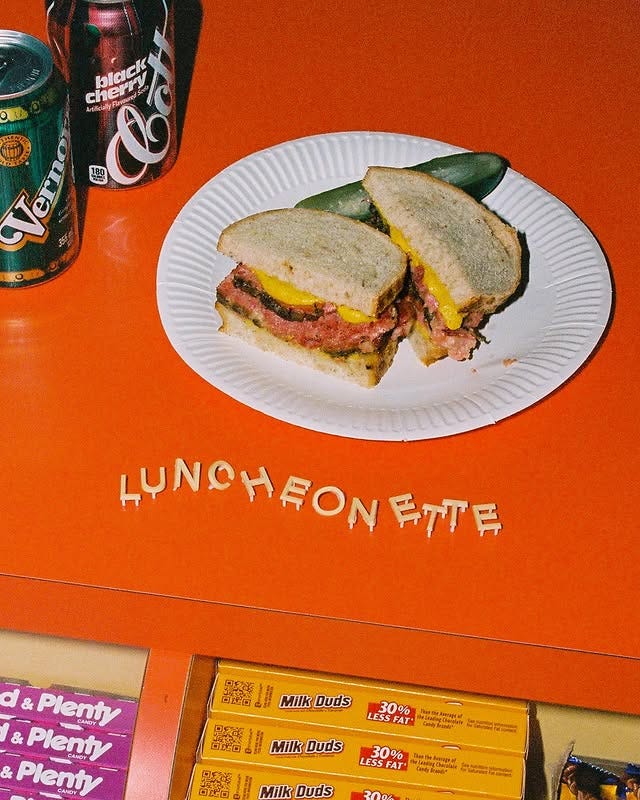Are coffee parties a recession indicator?
We've traded boozy late nights for caffeine-fuelled day parties.
Yesterday morning, several hundred young people congregated on the ground level of The Well for a sold-out edition of Coffee Party Toronto. The first DJ set kicked off at 10:30 a.m. and guests were invited to socialize, dance, and help themselves to coffee and pastries until ‘final call’ at around 3:00 p.m (at least, that was the initial plan).
The sober day party series has been running monthly since November, and is part of the explosion of alcohol-free events happening at cafes across Canada and around the world. A quick Instagram search turned up similar parties popping up in Belgium, Spain, Brazil, Poland, Columbia, the U.S. and Thailand, all within the last two weeks.
The appeal is the same: No late nights, no hangovers.
Health is one factor, but the other is increased cost consciousness in the face of economic uncertainty — what the kids are calling them ‘recession indicators’. That’s why there’s been an explosion of free, or almost free, events, across the city, from vintage markets to niche run clubs to trivia nights. Meanwhile, nightlife is hurting.
It doesn’t matter that some people don’t seem to enjoy these parties. They’ve been so popular that the group behind them has launched a coffee brand and is planning a festival at Stackt. I’ve not been to one, because my definition of a “high-energy social experience” was two martinis at Writer’s Room the night before, but never say never.
IN OTHER NEWS:
No more AI Barbies, please. LinkedIn was a weird place this morning.
I’m not seeing many Canadians at Coachella. Palm Springs (which relies heavily on Canadian tourism) put up forty bright red banners reading “Palm Springs ❤️ Canada” to stave off potential boycotts. Border crossings to the U.S. are down by 14% compared to last year, and there are so few flight bookings that Delta Air Lines is considering cutting routes.
The country’s largest department stores don’t seem to be interested in Hudson's Bay's real estate. Holt Renfrew indicated as much, and Simons already committed to filling the space left by Nordstrom in the Eaton Centre.
Smartphones are exempt from U.S. import taxes on Chinese made goods. Trade experts say the 125% tax would have led to price increases in Canada, too.
When was the last time you got a haircut? People are switching to less expensive services and leaving more time between appointments, according to a Bloomberg report. Many hairdressers left the industry altogether when demand didn’t recover after the pandemic (mine retrained as as emergency dispatcher).
Lauren Sanchez and her five girlfriends blasted off to space. I’m still processing this. Blue Origin, the private rocket company owned by her fiancé Jeff Bezos, has not confirmed the cost of a seat of future flights (feels like it depends who’s asking) but requires a US$150,000 deposit to start the process.
The Ontario Securities Commission is coming down on Polymarket. The platform lets people bet on the outcomes of real world events, like whether Mark Carney will win the federal election, or whether Canada will ban Pornhub in the U.S. by May, with users betting against each other rather than “the house.”
American creators receive nearly half of all views for Canadian election coverage. A new report by Reset Tech shows TikTok accounts from outside Canada posted 13% of videos about Canadian politics this year, but accounted for 45% of views. Not to mention the line between news organizations and creators continue to blur, making it harder to validate what you find online.
“We go for lunch and just turn around and come back.” Welcome to the life of extreme day-trippers like Kevin Droniak, who flew to Egypt from New York and managed to squeeze in lunch and a tour of the pyramids. It cost him US$1,192.
And if anyone is secretly travelling to LA this spring, the morning coffee sets hosted by AM Radio Club (I am pretty sure they started this trend last summer) look fun.






